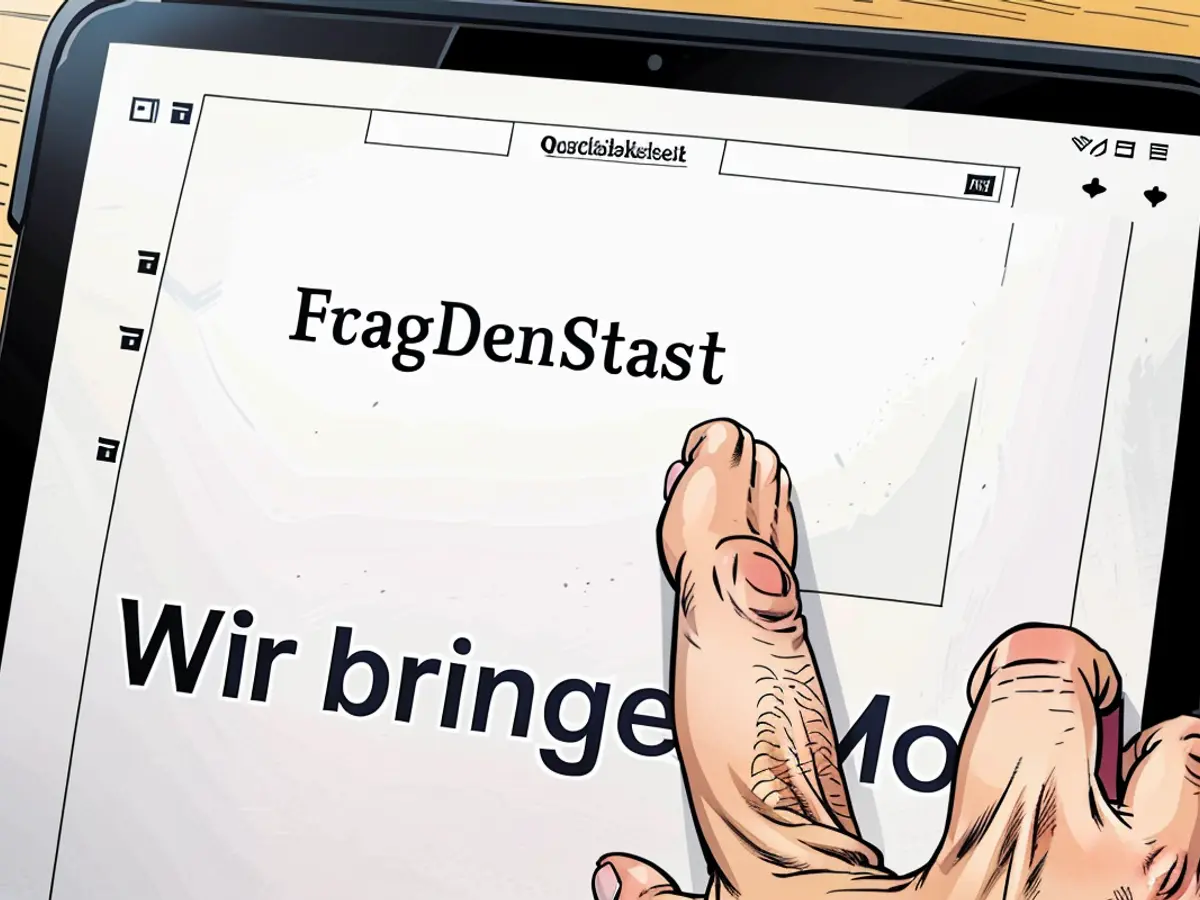The judicial authority issued a caution to the overseeer of "FragDenStaat"
The verdict in this situation hasn't been fully delivered yet. At present, journalist and activist Arne Semsrott is indicted for publishing court documents associated with investigations. The sanction is moderate - but Semsrott remains resolute in his beliefs.
Semsrott was given a warning for publishing court documents concerning the climate group 'Letzte Generation' on the internet portal "FragDenStaat". The Berlin Regional Court found him guilty of breaching the law, specifically regarding the prohibition of disclosure of information about court proceedings (§353d StGB).
The judges, however, opted for a lenient punishment: Semsrott is only required to pay a fine of 1,000 euros (20 daily installments of 50 euros) if he commits another offense within a year. The prosecution had proposed a fine of 40 daily installments of 50 euros, while the defense advocated for acquittal.
The court could have dismissed the case due to its trivial nature. However, Semsrott rejected this, as a comprehensive resolution could not have been attained. The case will now proceed to the Federal Court of Justice, as Semsrott has declared his intention to appeal.
Journalists' Union Suggests Amendment
In court, Semsrott admitted to posting three judgments of the Munich Local Court on the internet, thereby violating the law. He argued that the current legal situation infringes upon press and academic freedom. The law, in his opinion, is no longer pertinent given the advancements in the media landscape, leading to a "mental division."
According to the law, the publication of investigation documents and court decisions from ongoing proceedings is not allowed. The law carries a penalty of imprisonment for up to a year or a fine. The intention behind this criminal provision is to shield witnesses and lay judges from being influenced by preliminary investigation results before the trial.
From Semsrott's and his lawyers' standpoint, as well as that of the Society for Civil Liberties (GFF), which supports the case, this is unconstitutional. Nevertheless, the Federal Constitutional Court in Karlsruhe has thus far ruled differently. The German Journalists Association urged the federal government to amend the section. "It is no longer up-to-date and penalizes journalists who are merely performing their duties," explained Mariana Friedrich, deputy federal chairwoman of the DJV, following the verdict.
In this specific instance, the judgments related to the proceedings against 'Letzte Generation' due to the allegation of forming a criminal association. It involved searches of group members, the seizure of the group's website, and the surveillance of the group's press phone. The judiciary's actions sparked criticism at the time.
Judge Supports Case-by-Case Evaluation
In order to address the group's behavior appropriately, the requirement of original documents and quotes from them is essential, argued Semsrott. This is especially important during a time of false information. The existing norm is no longer relevant, but from the judge's perspective, the changed media landscape poses a significant risk to the "functionality of the criminal process." "We believe that it is exactly this protection that is necessary," said Judge Bo Meyer.
Judge Meyer underlined that it's not about whether the judicial system or judges can't be criticized. A substantive reproduction of such documents is always possible. However, publishing verbatim court documents from ongoing investigations carries the risk of them not being properly contextualized.
From the court's perspective, the penal norm is not unconstitutional. However, Judge Meyer emphasized that each case must be assessed individually. A "balance between press freedom and the functionality of the criminal proceedings" must be achieved in each instance.
Semsrott strongly criticizes the current law on freedom of the press, stating that it infringes upon press and academic freedom and is outdated in the context of modern media. The German Journalists Association, led by Mariana Friedrich, has urged the federal government to amend the section, arguing that it unfairly penalizes journalists performing their duties.
Despite being found guilty and fined for violating court secrecy laws, Semsrott remains firm in his belief that the existing norms are no longer relevant in the current media landscape. Judge Bo Meyer, while acknowledging the importance of press freedom, believes that each case should be evaluated individually to strike a balance between press freedom and the functionality of the criminal proceedings.









